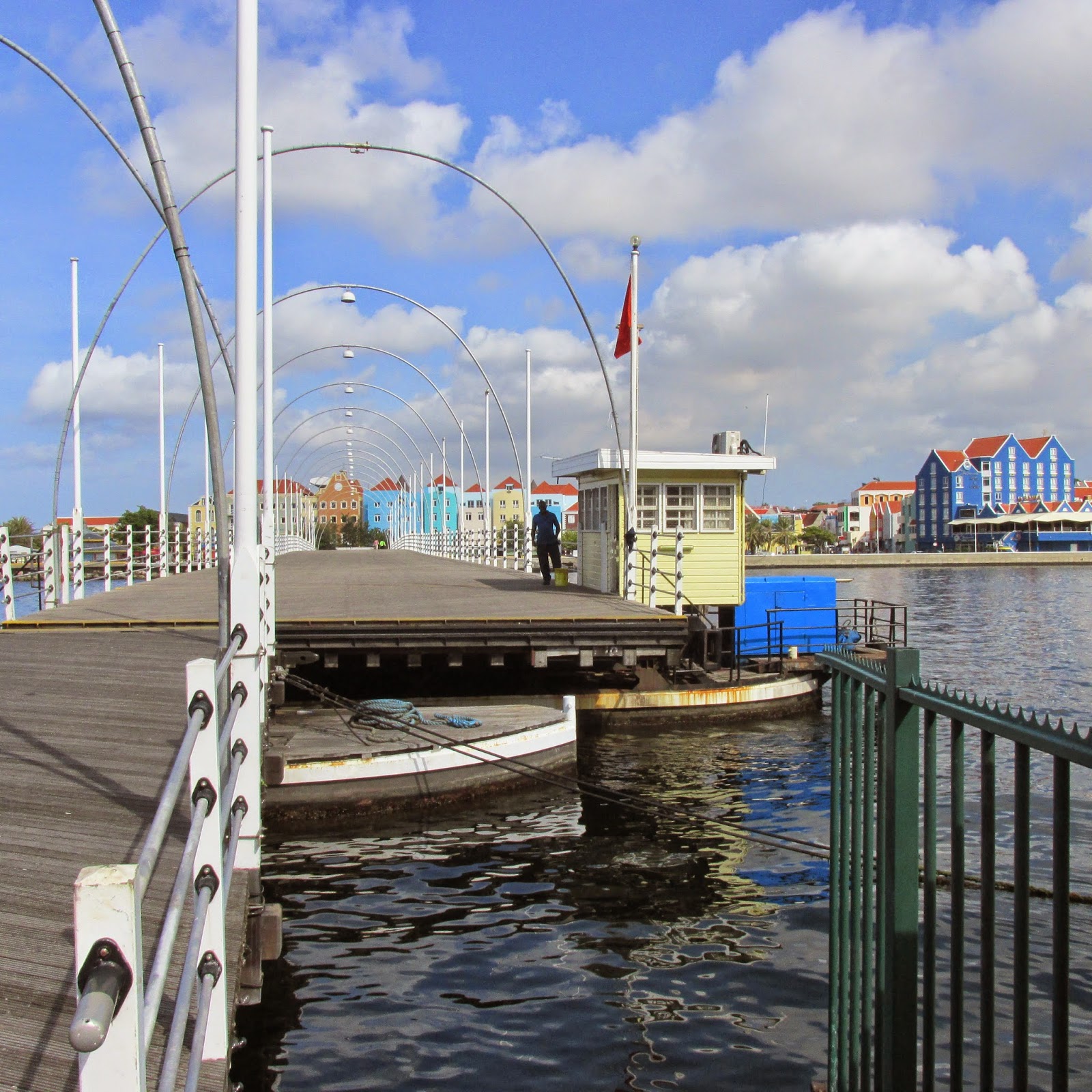Curaçao is an island near the western part of Venezuela, which together with Aruba and Bonaire is part of the Dutch Caribbean (the so called ABC islands). One explanation for the origin of the name Curaçao is that it is derived from the Portuguese word “coração”, which means heart.
Fin di Siman na Korsu is in Papiamentu, the local idiom, a form of Creole that is taught in primary schools, as well as Spanish, English and Dutch. It means “Weekend in Curaçao”.

Queen Emma Bridge
The capital is Wilemstad and the city centre is divided in 2 parts: Otrobanda and Punda. Queen Emma Pontoon Bridge separates the two halves of the city.
Queen Juliana Bridge is the tallest bridge in the Caribbean and from there you have an amazing view of Otrobanda and Punda in one side, and of the industrial area of the other side .
When oil was discovered in Venezuela (Maracaibo) in 1914, the economy of the island changed as Shell built a huge oil refinery which employed around 10 000 people. Curaçao was an ideal site for the refinery- it had an excellent natural harbour that could hold large oil tankers.
The rapid industrialization of Curaçao, based on oil refining, resulted in an urgent need for labour, which the small community could not provide. The Portuguese, mostly from Madeira, were among the immigrant workers who came from the 1920s until the 1950s. A small group managed to stay either at the refinery or in the agricultural sector while others came to join them.
The Portuguese citizens evolved since the 1960s into a group with a strong entrepreneurial spirit, particularly in the supermarket sector. Nowadays there are about 40 different “cultures” in the island.
The Portuguese citizens evolved since the 1960s into a group with a strong entrepreneurial spirit, particularly in the supermarket sector. Nowadays there are about 40 different “cultures” in the island.
A special hat used for "culture week". At this time there is a hat competition.
Although the florin is the currency, the dollar is used everywhere and you can even withdraw dollars from the ATM machines.

.JPG)
.JPG)
You can find many different sorts of cactus.
This Divi-Divi tree has been "sitting" for more than 80 years, according to our guide, Mr Eric Sommer


Mt Christoffel, the highest point (375 metres)
The iguana is a typical animal and you can find it easily in the woods. Iguana soup is a delicacy eaten mainly by men: as iguanas have two penises some people think it can improve their sexual performance by eating this soup.
Flamingos can also be found
and many birds...
Main attractions in Curaçao:
Willemstad is included in the Unesco World Heritage.
Floating market
Wedding cake house in the district of Scharloo where the rich Jews lived
Rif Fort was built at the beginning of the 19th century to provide defense for the harbour.
Plantation Houses (Landhuizen) are historical and cultural characteristics of the island. They date back to the time of slavery (slave trade was officially abolished in 1863). They were the main building of the plantation, where the family of the owner lived. Nowadays they are used for different purposes (restaurants, art galleries, foundations...)






.JPG)
%2B-%2BC%C3%B3pia.JPG)


.JPG)









.JPG)




Gostei muito! Tambem quero ir!
ResponderEliminar